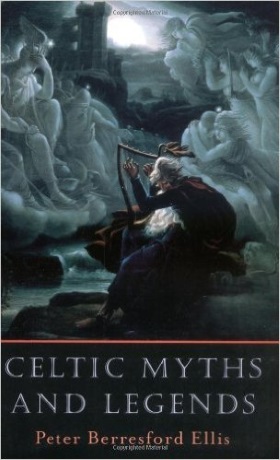 “Celtic Myths and Legends”, by Peter Berresford Ellis, is an entertaining 600 pages of 37 mythic tales drawn from the legends and folklore of the six Celtic nations. This work benefits immensely from the story telling prowess of the author who is also author of the “Sister Fidelma” historical mysteries under his pseudonym of Peter Tremayne.
“Celtic Myths and Legends”, by Peter Berresford Ellis, is an entertaining 600 pages of 37 mythic tales drawn from the legends and folklore of the six Celtic nations. This work benefits immensely from the story telling prowess of the author who is also author of the “Sister Fidelma” historical mysteries under his pseudonym of Peter Tremayne.
In addition to the tales based on folkloric tradition, the author gives the reader a grounding in the Mythology of the Celtic peoples and an overview of the Celtic languages in the 22 page introduction. An introduction which deftly places into context the ancient roots of Celtic mythology and in doing so supports the premise that certain aspects of Celtic Myth are windows to the very beginnings of Indo-European culture. Ellis continues with a concise summary of the linguistic development and divergence of the mother tongue into the two Celtic language groups of Brythonic (Welsh, Breton and Cornish) versus that of the Goidelic (Irish, Scottish and Manx).
Linguists argue that the form of Celtic we term Goidelic is the more archaic branch of Celtic. It is suggested that around the 7th century BC, the Celtic languages subdivided, when the form which we call Brythonic emerged. From a Goidelic parent, Brythonic modified and evolved in several ways.